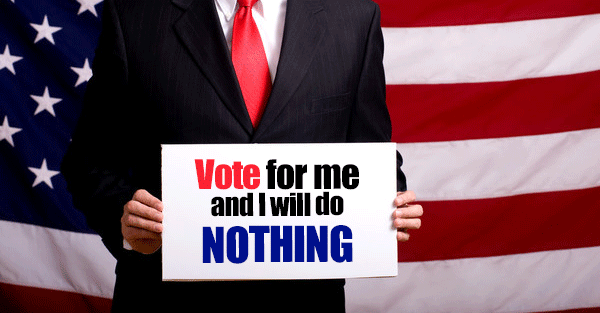
What the President Does … By Jonathan Bernstein Turns out maybe Donald Trump doesn’t want to be president after all. Oh, he wants to run for president. Almost certainly wants to win. Probably wants to be inaugurated. But doing the actual job? That’s something else. At least according to Paul Manafort, Trump’s strategist and campaign chairman, in an interview with HuffPost’s Howard Fineman. -Bloomberg
So Donald Trump wants the job of president but he doesn’t actually want to do the work involved.
This Bloomberg editorial is sharply critical of Trump’s apparent perspective. An active, engaged president is absolutely necessary to the success of a president’s reign, we learn.
But who defines success and what does it mean? Is it possible that a disengaged president might be more “successful” from the public’s point of view?
Perhaps the nation will find out if Trump wins.
The editorial relates that Trump sees himself playing the role of chairman of the board when it came to the presidency.
However, the article points out that the job of being president is effectively the job of a chief executive. That’s not just a title. It’s the job’s essence.
The presidency is a full-time, hands-on job, and it only works with a master politician in the Oval Office, obsessively building up his or her ability to influence all those the president must work with.
… Executive-branch agencies won’t do what the president wants without active management (indeed, it’s hard even for engaged presidents to get them to). … When presidents become disengaged, the results can be disastrous.
Obama can be seen as a somewhat detached president given the amount of vacations he’s taken and rounds of golf played.
Even his travel costs are significant. McClatchy reported that the price tag of the Obamas’ 2015 trips included some $11.6 million for travel costs alone. That brought the overall cost for travel to at least $70.5 million since Obama took office in 2009.
But when Obama wasn’t traveling or vacationing, he was costing the US taxpayer even more money via programs he supported. Obamacare for instance, essentially nationalized one sixth of the US economy. And costs keep going up.
Recently, reports estimated that the legislation was about $136 billion more expensive than anticipated. But was the legislation even necessary?
Prior to World War II, no public health care existed. But during World War II, corporations began including health care to attract employees. This pattern persisted after the war.
After the war, Medicare and Medicaid became law and the government began paying for the health care of seniors and poor people.
And then under Obama, the Patient Protection and Affordable Care Act was passed. This is known as Obamacare.
Obamacare gives health-insurance coverage to about 15% of the US population that didn’t have it.
But in order to make Obamacare work, all Americans have to buy insurance, no exceptions. Also businesses with more than 50 full-time employees must provide health-care coverage.
We can see that Obamacare forces people to buy health-care insurance. This is a huge gift to insurance companies, which have effectively been monopolized.
Additionally, Obamacare gives health care to people who didn’t have it before. These people used to go to the emergency room when they needed treatment, or found a doctor who would treat them for little or no cost.
Before government got involved, people worked out health care issues for themselves. If people didn’t have health care, doctors took care of them nonetheless, as did hospitals.
But now government mandates health care and instead of a robust and flexible system, everyone is forced to pay into a system that enriches insurance corporations.
People are resentful while monopoly health care practices hugely distort costs. Medical innovation is damped because the bureaucracy will only pay for certain treatments.
Fewer and fewer doctors want to work within the current system and thus the number of health care professionals is contracting.
Because the system is so rigid and bureaucratic, it has a great deal of trouble adapting to change.
This is one reason for the vaccine scandals. In a more open environment the truth about negative effects of vaccines would have been disseminated. Instead it these effects have been concealed, creating a huge controversy that further polarizes people’s attitudes toward Western medicine.
Western medicine has moved away from the age-old traditions of naturopathy and adopted an allopathic model in which ailments are “fixed.” The total body is not tended to, only symptoms.
This is the system that Obama reinforced with his legislation. This is the “work” he did, which Bloomberg speaks of:
For presidents to be effective, there is no substitute for Max Weber’s “slow boring of hard boards.” … Trump himself hasn’t said this is how he would run things. But it isn’t hard to see why some of us are less worried about Trump’s authoritarian instincts than we are about chaos and incompetence in the White House.
Obamacare is actually a good example of how the political process works in a modern state.
It forces people to pay for services they don’t want, creates a medical monopoly that distorts prices and reduces professional participation, creates redundant services that were once offered voluntarily by providers and hampers innovation and creativity.
Conclusion: Within this context, the Bloomberg article makes little sense. Who wants an “efficient” president when the outcome of political processes almost invariably reinforce incompetence and degrades both goods and services?
